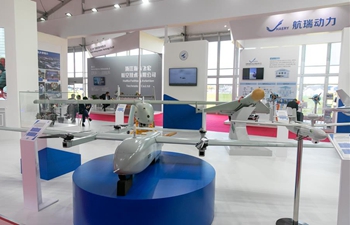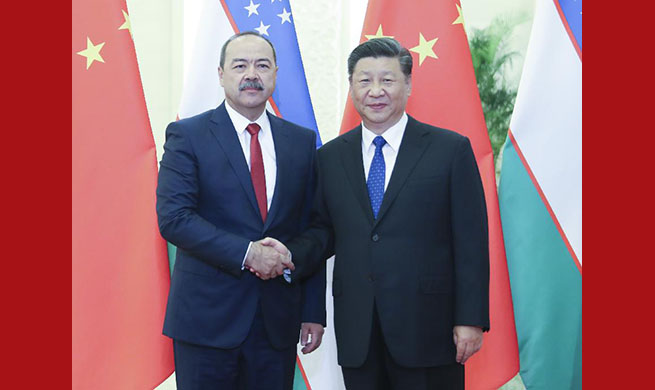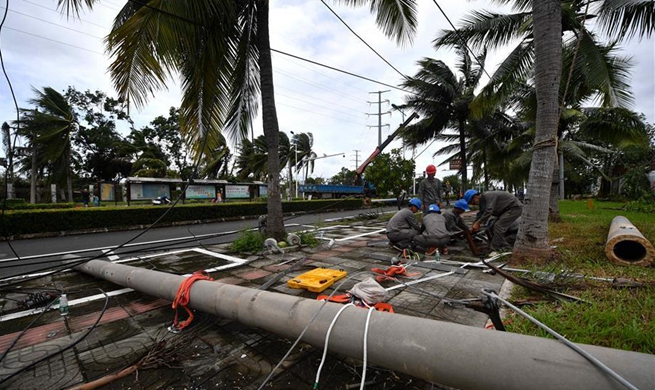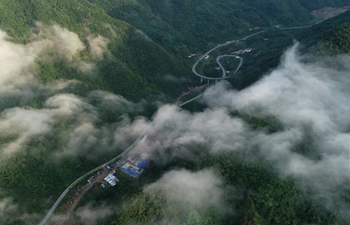SINGAPORE, Aug. 29 (Xinhua) -- If countries, sectors and firms do not transit to a low-carbon economy and become climate resilient, climate change will have a drastic impact on the competitiveness of these economies.
This is the warning from Benoit Bosquet, the World Bank's regional director for sustainable development in East Asia and Pacific.
He was delivering the keynote address "Climate Change and Competitiveness" at the 2019 Asia Economic Forum here Thursday at the Bukit Timah campus of the National University of Singapore (NUS).
Kicking off from Aug 29, the two-day forum is jointly organized by the World Bank Group and the Asia Competitiveness Institute (ACI), a research institution at the Lee Kuan Yew School of Public Policy (LKYSPP) at NUS.
Bosquet cited findings by the United Nations' Intergovernmental Panel on Climate Change (IPCC), which said the world could see global warming of 1.5 degrees centigrade by 2030 and 2050s, if it continues to increase at the current rate of carbon emissions.
As the world heats up, the risk of positive feedback in global weather systems causing "runaway warming with catastrophic impacts" grows considerably, said Bosquet.
For one, firms in the agricultural and tourism sector will be impacted as they directly depend on climate conditions for the goods and services they produce. Furthermore, the projected scarcity of water resources may affect a large number of sectors, he said. In some regions, firms' labour productivity will be affected by the health implications of climate change.
Corporate assets will be exposed to increased risks from extreme climate events like storms and wildfires, while supply chains will be impacted, added Bosquet.
On the other hand, Bosquet believes that action taken to address climate change can boost the competitiveness of countries, sectors and companies.
Governments ought to invest in "climate resilient infrastructure" and put into place policy incentives conducive for climate-smart investments, green finance and innovative technologies. These can range from energy or water subsidies or creating clear policies such as setting a price for carbon, he said.
Furthermore, businesses need to "build a climate and sustainability lens" into their investments, scale up clean technologies, and reduce their climate footprint to maintain their competitive age.
There have been positive shifts in recent years. Increasingly, investors are seeking green opportunities, he noted. While most of the global investment in green assets is from Europe, the "attitudes in this region are changing," said Bosquet.
Three Singaporean banks have stopped financing coal-powered plants, while other local investors are banking renewable energy projects in Indonesia, Myanmar and the Philippines, he said.
However, the challenge remains as most companies "do not have the expertise to assess and manage novel risks associated with physical and regulatory changes" across different locations.
Hence, the financial and insurance sectors are crucial in "sending the right price signals" to change business behaviour and consumer choice, said Bosquet.
They can also help provide investors with better information on how companies are handling climate risks and preparing for a low-carbon economy.
Citing how some scientists have said the world is "sleep-walking into disaster and catastrophe" in terms of a lack of awareness of the risks of climate change, Bosquet said there needs to be more global awareness and greater regulatory change.
"It's late, but never too late… The world must act now and take much faster action at all levels, businesses, individuals, academia, governments, international organisations, financial sector. It's happening, but not happening fast enough."













